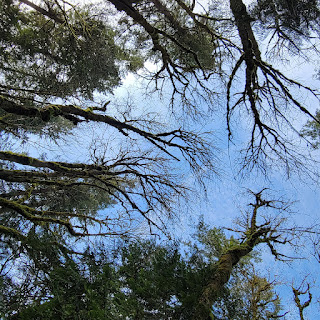An online community I participate in regularly offered up a probing question of the day recently: "What do I stand for?".
Such a powerful question! I have a feeling this isn't a complete list, but here it is so far:
I stand for kindness: To myself, to others, to the earth and everything that lives on it.
I stand for justice: The recognition that we have had generations of injustice and deep, compounding harms that mean some people start out in a hole dug by official policies and actions and face a steeper climb than others. (Here's a graphic from the LA Metro Design Studio that illustrates equality, equity, and justice much better than the one you may have seen with kids shut out of a ballfield. I don't use the kids-on-boxes graphic, which still leaves the kids outside the fence.)
I stand for accountability: For recognition of my own privilege that I didn't understand until I started unlearning and relearning, and for what I do with that privilege to make a difference. (A couple of my blog posts on privilege and bicycling: Riding Thoughts: Privilege is a Tailwind and Privilege and Biking: It Takes More than a Bike Lane to Start Riding)
I stand for mother love: For my daughters. my stepchildren, and former stepchildren I'm still connected to, and for encouraging them to grow into themselves, not some version tied to what I think they should or shouldn't be or become.
I stand for love: My love for my husband, and every human being's right to love who and how they love.
I stand for friendship: For being someone who is there for hard times, not just fun times, and someone who nurtures friendships with time and attention.
I stand for engagement and connection: In my neighborhood and community, in policy and politics, in philanthropy and volunteering, in the everyday connections I can foster by connecting people to other people, resources, and ideas.
I stand for freedom: For the right to control our own bodies, for the right to be who we are in the world without fear.
I stand for environmental action, both personal and systemic: That is, I make individual choices to live more lightly on the earth but I know that even if everyone did the same we can't offset the actions of corporations and governments that engage in widespread damage and policy decisions that make things worse, rather than better. I'm fortunate that my professional life enables me to truly make a difference and gives me a wider platform, I vote for people who will move us forward toward survival as a species, and I shop locally, including food, to support local living economies.
Fundamentally I stand for making the world a healthier and more equitable place for all: Both close to home and far away, I support with words, actions, and cash the people and organizations making a difference.
Years ago I wrote a post about the 4-H pledge that somewhat relates to this question.
I expect to keep pondering the question and may come back.
What do you stand for?
Related reading:
- We Are the Ones We've Been Waiting For: Poems for Activists and Advocates (Aug. 12, 2023)
- Bike Books I Recommend: Policy Edition (Bike Style, July 15, 2023)
- Why I Walk (July 8, 2023)
- Riding Thoughts: Privilege Is a Tailwind (Bike Style, June 19, 2023)
- How Am I Going to Get There? Why We Need Each Other (Bike Style, Feb. 18, 2023)
- Lost Year. Lost Future? (July 17, 2021)
- Street of Dreams: Can We Live the Martin Luther King, Jr. Way? (Bike Style, Jan. 20, 2020)
- Welcome to our Twitter Chat: #BikeSchool #MoveEquity #WheelsMoveMe (Bike Style, Dec. 10, 2019)
- Give Your Power to Truth: What Story Are You Writing for Your Life? (Bike Style, Nov. 10, 2018)
- Hey (We’re Not All) Guys! Why I Don’t Use “You Guys” (Sept. 28, 2018)
- Showing Up (Dec. 31, 2016)
- Personal Privilege and Biking: It Takes More than a Bike Lane to Start Riding (2016 update) (Bike Style Life, Nov. 19, 2016)
- Thinking About Garbage (and How to Make Less of It) (Jan. 18, 2016)
- Inclusion (Sept. 15, 2014)
- How I Came to Be a Bike Advocate (Sept. 15, 2014)
- When I Get Older: Why I'm Counting on a Multimodal System (Washington Bikes July 28, 2014)
- Is There Such a Thing as a Lowercase "nazi"? (June 24, 2012)
- Why Marriage Matters: A Valentine to my Sweetheart and a Thank-You to the Washington Legislature and Governor Gregoire (Feb. 14, 2012)
- Paying It Forward: Why I Vote YES for Kids and Schools (Jan. 29, 2012)
- Hate Cannot Drive Out Hate: Only Love Can Do That (Jan. 16, 2012)
- Seeing with New Eyes (on Bike Style Spokane Jan. 14, 2012)
- Be a Green Dot on a Bike, Part II--The Hard Part (on Bike Style Spokane Jan. 7, 2012)
- Be a Green Dot on a Bike, Part I (on Bike Style Spokane Jan. 6, 2012)
- Everyday Riders and Unseen Cyclists (on Bike Style Spokane Oct. 22, 2011)
- The Very Proper Gander: A Fable for our Times (Oct. 21, 2011)
- Head, Heart, Hands, and Health (Feb. 6, 2011)
- Everyday Inclusion: Showing up for a Parade Once a Year Isn't Enough (Jan. 17, 2011)
- If You Really Love Your Neighbor, You'll Eat Local Food (Jan. 14, 2011)
- Representing the Aryans: Political Speech, Violence, and Living Without Fear (Jan. 9, 2011)
- We Stand United (Oct. 29, 2010)
- Green Is the Color of Money: Growing a Sustainable Local Business Approach (Sept. 20, 2010)
- 3 Things My Mother Taught Me (Sept. 13, 2009)
- Standing Up for What's Right (Oct. 18, 2008)













